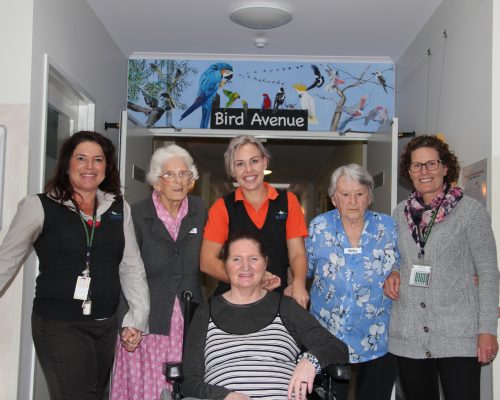Montessori stories powerful
The benefits to residents, families and staff, resulting from the introduction of a form of care designed to enhance the quality of life for older people living at the 70 Lowe Street aged care facility, have been revealed in a research report from Federation University.
70 Lowe Street, one of three aged care facilities operated by East Grampians Health Service, introduced the Montessori Model of Care in 2015.
The Montessori Model of Care works by altering the physical environment and staff training in order to create a bridge to reconnect people who may seem unreachable.
The model gives residents the opportunity to use their hands and five senses to activate and stimulate their minds and is proven in helping people with dementia to remain independent for as long as possible.
70 Lowe Street has been upgraded to provide visual cues and a variety of new activities. This has enhanced the quality of life of the residents, allowing them to experience success at the activity they participate in, reducing anger, frustration and increasing their sense of security and confidence.
Researchers from Federation University were engaged to report on the impact of this initiative on staff who work at 70 Lowe Street.
At a recent presentation to staff, Senior Research Fellow with Federation University Wendy Penney outlined her findings into the staff experiences of the Montessori Program.
“To capture the impact of this initiative on staff who work in the facility, East Grampians Health Service felt it important to explore their views,” Dr Penney said.
“It was anticipated that implementing a Montessori program would not only improve quality of life for residents but make a difference to how staff view the care they give.”
Registered nurses, enrolled nurses, patient care attendants, lifestyle coordinators, allied health and support staff at 70 Lowe Street were invited to participate, with individual interviews and focus group meetings held.
“The overwhelming common theme is the belief that Montessori gives residents a sense of purpose in their daily life, which includes having choice, maintaining an identity, being involved and having some independence,” Dr Penney said.
“The stories told are powerful, with participants describing how residents are happier, communicate better and have been given a voice.
“Staff also spoke of enjoying coming to work, enjoying the home-like environment, feeling part of a team and satisfaction at being part of change.
“Without doubt, the introduction of the Montessori program at 70 Lowe Street has resulted in substantial benefits, with staff and family members noticing that residents are happier and more involved with daily activities.”
It is planned that an extract of this report will be presented nationally at the Aged Care Nurse Managers conference in May, the Lifestyle Coordinators conference in August and the National Nursing Forum in Sydney in August.

Pictured above: Bernadette Cincotta, Norma, Ingrid Henry, Heather, Betty and Dr Wendy Penney at 70 Lowe Street


